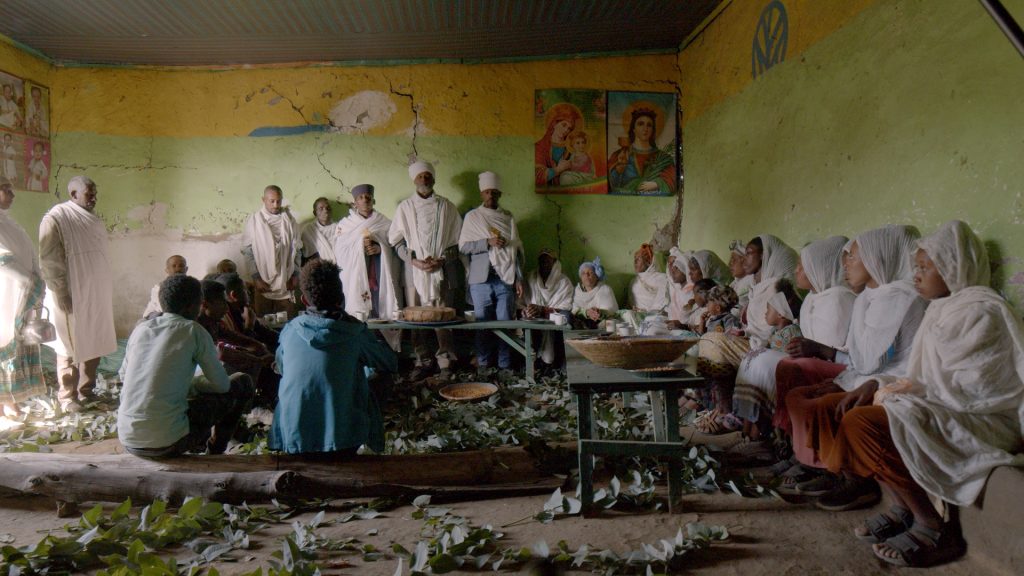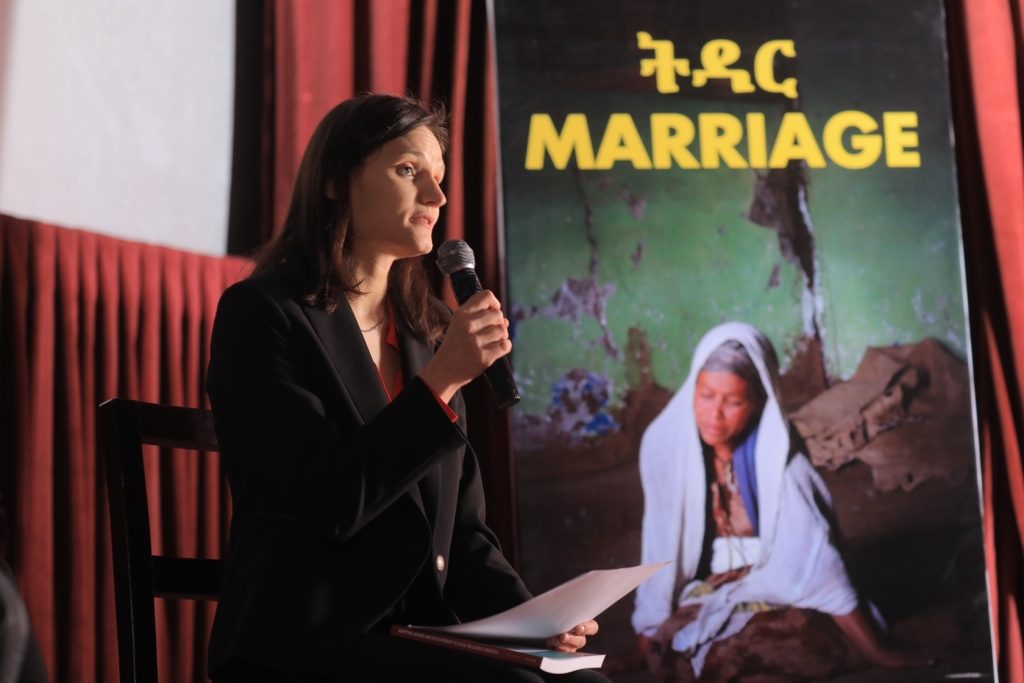
The project dldl/ድልድል’s educational film Tidar (Marriage) has now been published on the project’s new YouTube channel. This is one of many educational films produced by the project with funding from UK Research and Innovation to promote its public engagement and knowledge exchange aims.
The film is based on real people’s stories and testimonies collected through research in Ethiopia, and tells the story of Genet, who is experiencing domestic violence, and presents her search for a moral and practical solution to her situation within the village community. It shows how the community responds to Genet’s predicament and how personal faith, religious mediation and theological teaching influence how she thinks through her situation. The aim of the film is to raise awareness about the complex role that religion can have in situations of domestic violence in the Ethiopian Orthodox community, influencing both victim and perpetrator rationalisations and behaviour.
The film was written and led by Dr Romina Istratii, directed by Yidnekachew Shumete of Kurat Pictures and produced by Hermon Hailay and Max Conil of Exile Pictures. It has been re-enacted by Amharic-speaking actors in Ethiopia, with subtitles being produced in Tigrigna, Afaan Oromoo and English.
The film was written and led by Dr Romina Istratii, directed by Yidnekachew Shumete of Kurat Pictures and produced by Hermon Hailay and Max Conil of Exile Pictures. It has been re-enacted by Amharic-speaking actors in Ethiopia, with subtitles being produced in Tigrigna, Afaan Oromoo and English.
The film was screened for the first time in 2023 in Addis Ababa, Ethiopia, and again in London and Cambridge, UK in 2024. It was nominated as a finalist for the 2024 Learning on Screen Awards.
Dr Romina Istratii, Principal Investigator of Project dldl/ድልድል and writer of the film, has explained:
I would like to extend a heartfelt thank you to the director and co-producers, Yidne, Max and Hermon, for their exceptional passion and commitment to bringing this film to fruition. The extended team, Kedest and Gedam, Haile and Mesfin, whom I directly worked with, but also the all-Ethiopian crew on the ground – including the amazing actors – made this film possible. Without each and every person contributing to its production, including the communities supporting us, this film would not exist. Similarly, the film would not be as it is without the contribution and support of numerous theological experts and translators in Ethiopia who directly or indirectly informed our theological approach of the issue, including Henok Hailu, Selam Reta, Kesis Aklil Damtew and many collaborators affiliated with the Ethiopian Orthodox Church.
For those less familiar with the film, Tidar is based on stories and testimonies of real people in Ethiopia collected through years’ community-based research with women and men, clergy, monks and church teachers on the ground. The film does not seek to represent the teachings of the Ethiopian Orthodox Church, and theological experts were consulted in the making of the film where theological references are made. The film also does not seek to suggest how clergy should respond to domestic violence victims but rather depicts how different members of the clergy currently respond based on the findings of the research. The aim of the film is to problematise these responses, positive or negative, and to start a conversation within the Church and beyond.
The film is released to be used for educational purposes by any individual or organisations working on raising awareness about and responding to domestic violence in faith communities. While Genet’s story takes place in an Orthodox Christian community in Ethiopia, the challenges she faces as she seeks a solution to her situation are cross-cultural and can inform conversations and approaches elsewhere. The film should be understood as an attempt to present the complexity of the problem with all its nuances and not to essentialise the problem to Ethiopia only. So please use it with the appropriate context.
Viewers who are curious to understand better the motivations and approach taken to produce the film, may watch the short video ‘Making of Tidar’ also created by the project with the assistance of Kurat Pictures in Ethiopia and Chouette Films in the UK.
The film can be watched below and directly on YouTube. Viewers are advised that the beginning and ending scenes contain instances of domestic violence

You may read more information about the film below:
- Educating through film: domestic violence and faith in Ethiopia
- ‘Tidar’ (‘Marriage’) film premiere held in Addis Ababa, Ethiopia by Project dldl/ድልድል
- Screening of film Tidar (Marriage) held at the Institute of Orthodox Christian Studies in Cambridge
- ‘Making of Tidar’ film released by Project dldl/ድልድል
